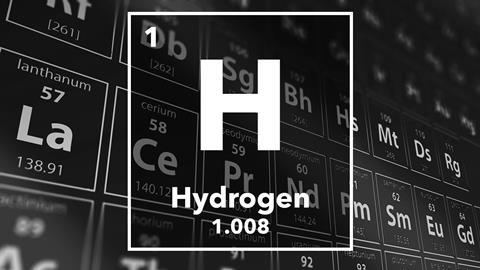An exciting trial at Keele University in Staffordshire is bringing the possibility of replacing natural gas with a gas/hydrogen mix a step closer.
The project, led by the gas distribution company Cadent, is the UK’s first live trial of hydrogen in a modern gas network. It is hoped that the year-long trial will provide evidence that customers don’t have to change their cooking or heating appliances to take the blend.
How many UK homes could hydrogen be used for?
Around 85% of homes in the UK have gas central heating, so a solution that makes use of the existing gas infrastructure and appliances is appealing. At Keele, 20% of the fuel mix used in the trial is hydrogen. The trial has shown that this a blend can be used safely – and effectively - in existing pipes and appliances.
At the moment the use of natural gas in heating is responsible for about a third of UK emissions. Burning hydrogen is much cleaner as it produces just water.
Cadent believes that if the 20% blend was to be rolled out across Britain, CO2 emissions would be reduced by six million tonnes; the equivalent of taking 2.5 million cars off the road.
Boilers of the future
Some boiler manufacturers have been working on boilers that can run exclusively on Hydrogen. Worcester Bosch has called for the government to stipulate that by 2025 all new boilers on the market should be hydrogen-ready in preparation for the future. The boiler that Worcester Bosch has produced can run on natural gas, but with an adjustment from an engineer, be made to run on hydrogen in just one hour.
Is Hydrogen a viable alternative to Natural Gas?
The drive to cut emissions is strong and since, as a fuel, hydrogen behaves in much the same was a natural gas, some experts believe it to be the most cost effective solution in helping us update our heating systems. A large scale role-out of heat pumps is another option, but this would be prohibitively expensive as it would require the UK’s aging housing stock to be made highly-insulated.
The drawbacks to Hydrogen are cost and availability. Hydrogen is a lot more expensive than natural gas. The hydrogen for the scheme at Keels is made in an electrolyser, which splits water (H2O) into its constituent parts: hydrogen and oxygen. Supplies of Hydrogen in the UK are limited at the moment, and although for the forseeable future it may be cheaper to produce hydrogen from natural gas which has its own negative impact on emissions, there there’s hope that eventually it could be generated pollution-free, using surplus wind power at night to run electrolysers to produce the gas from water.
What's next for hydrogen?
The Keele University campus was chosen for the initial trial as it has its own private gas system. If the trial goes well, Cadent will extend the scheme to the North East and then the North West. The trials are designed to test the blend across a range of networks and customers so that the evidence is representative of the UK as a whole. With HSE approval, and success at Keele, the second and third phases will go ahead in the early 2020s.
And Cadent’s long-term goal?
‘Once the evidence has been submitted to Government policy makers, we very much expect hydrogen to take its place alongside other forms of zero carbon energy in meeting the needs of the UK population.’
Want to know more about the role of installers in delivering a low carbon future? Download our free guide - 'The Ultimate Guide to Future Proof Installers'.

